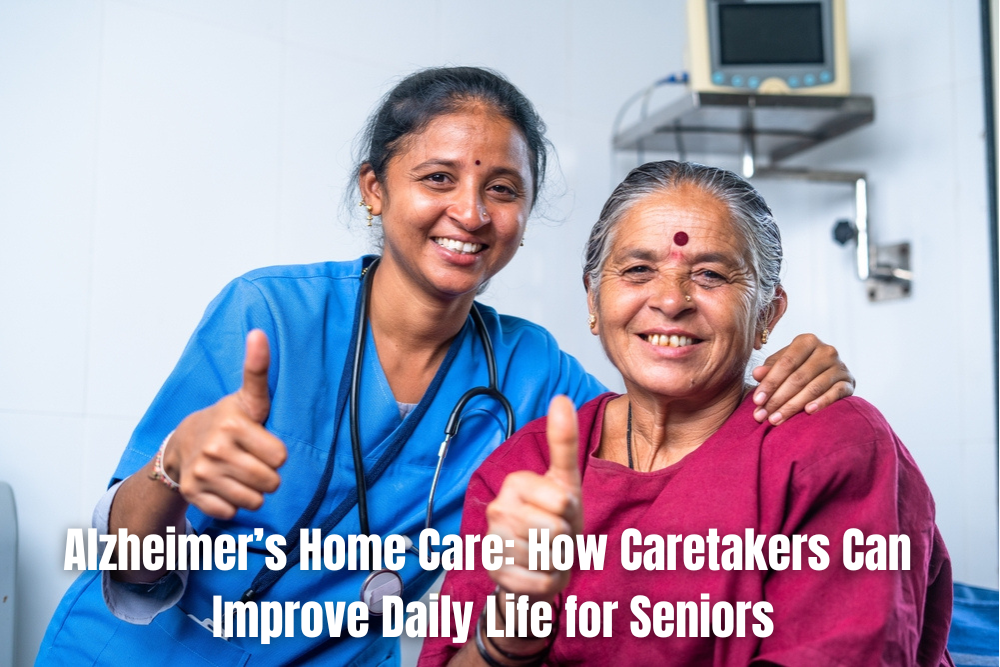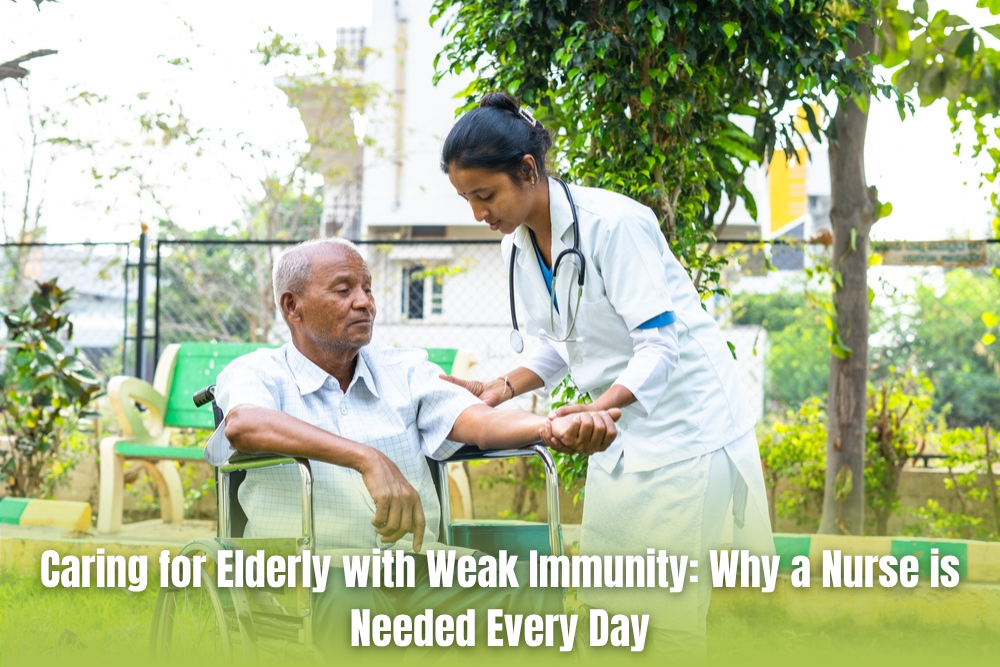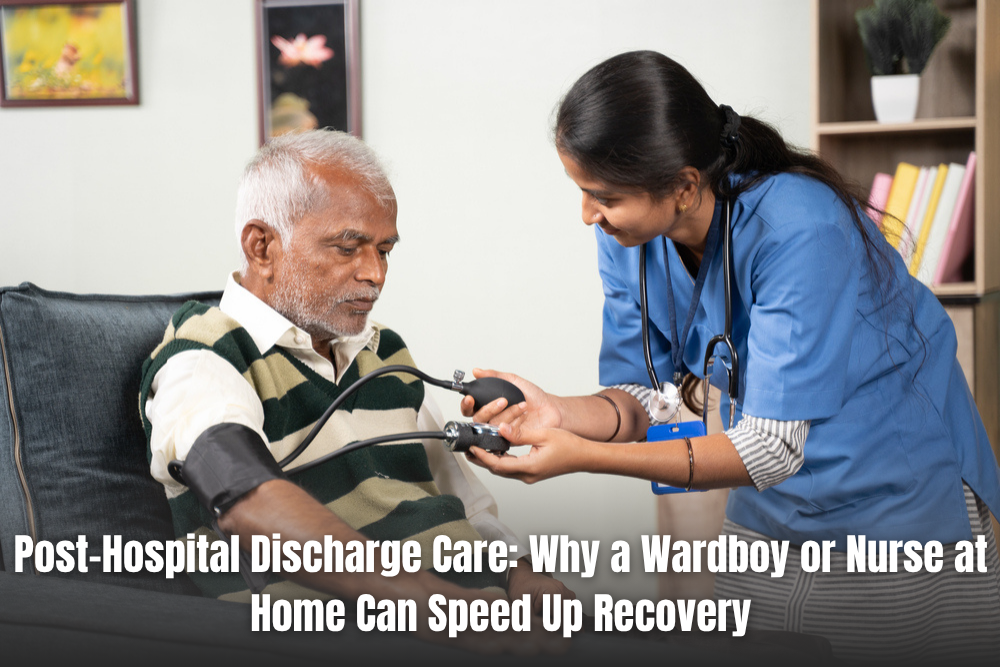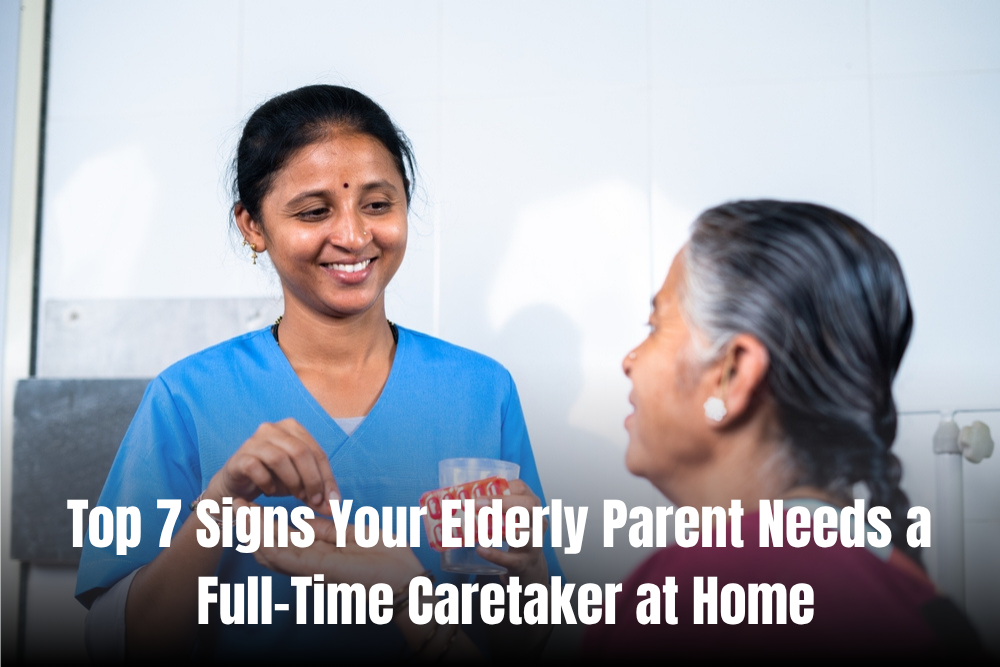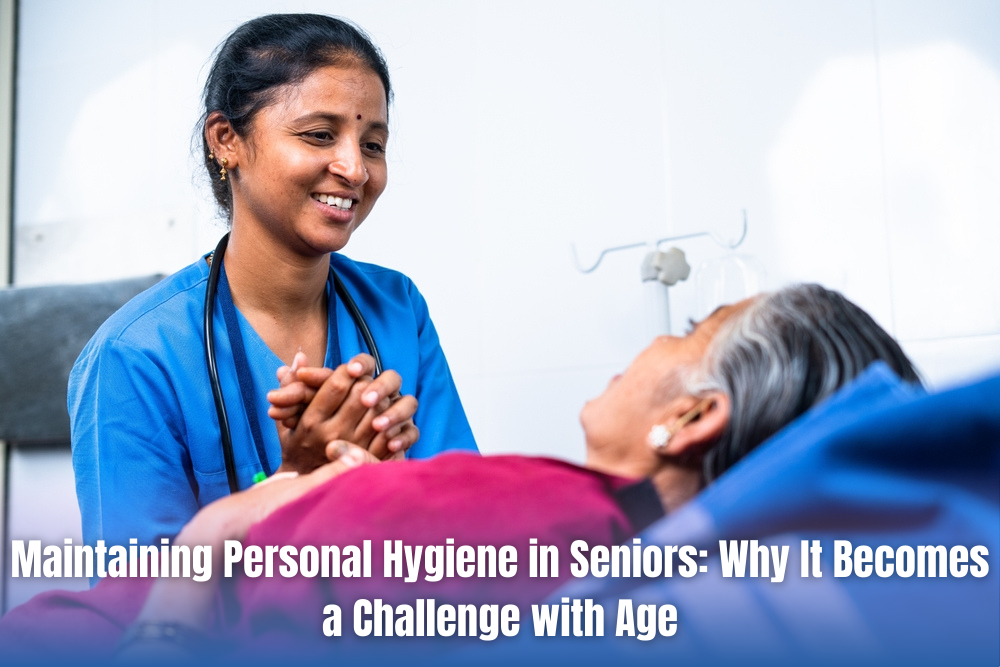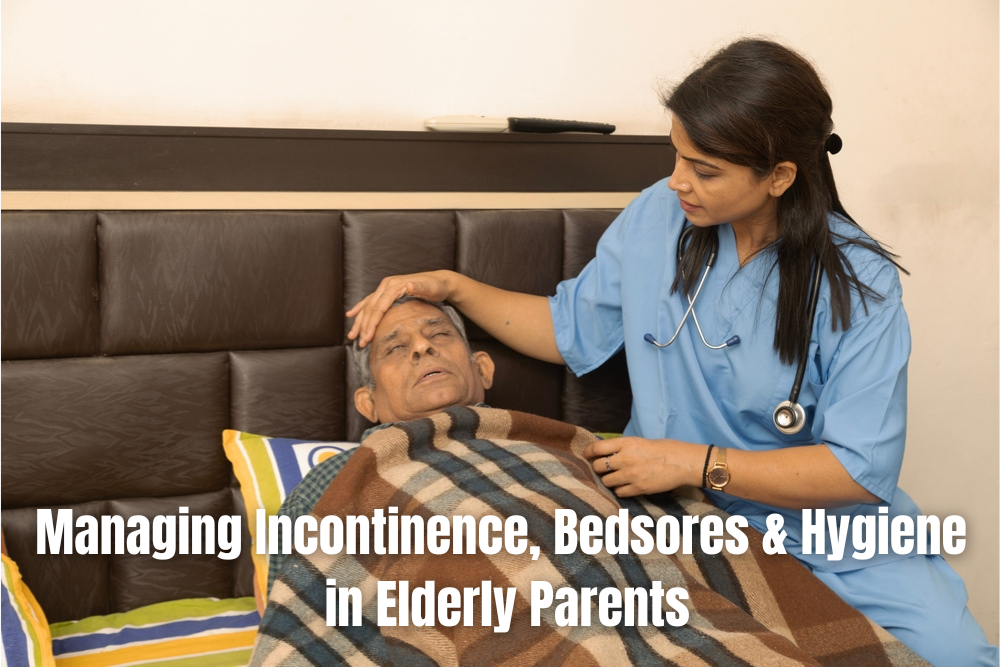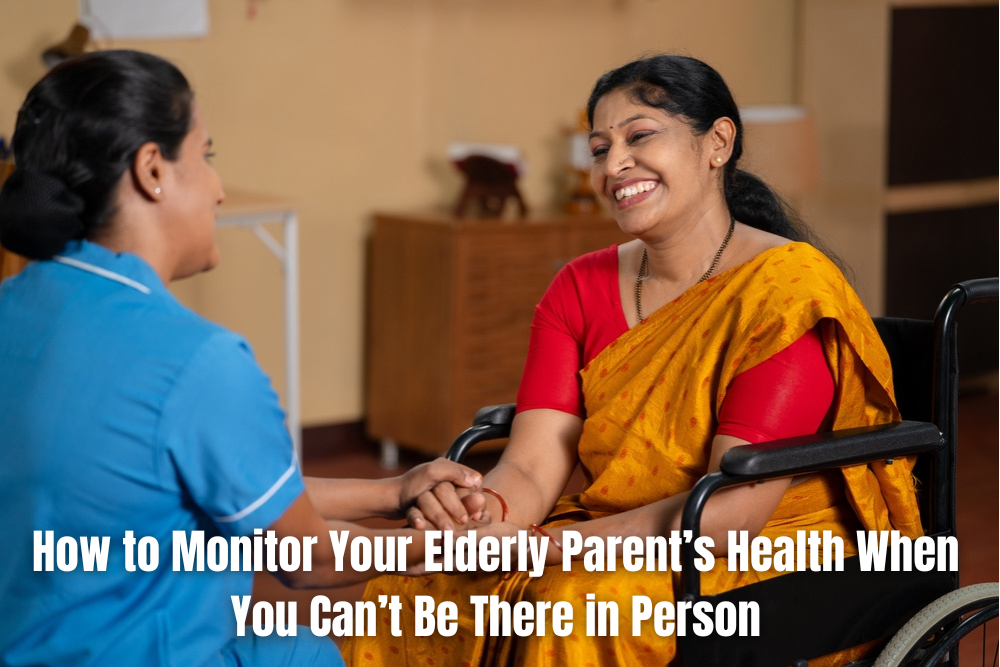If you’re reading this, chances are someone close to you, your mother, father, or grandparent is fighting cancer. You’re worried, overwhelmed, and wondering how you can give them the best care at home. This guide will walk you through exactly how to arrange proper home care for an elderly parent undergoing cancer treatment, especially chemotherapy, radiation, or post-surgery recovery.
By the end of this article, you’ll know:
- What kind of support a cancer patient needs at home
- The different roles caregivers and nurses can play
- How to set up your home to make daily life easier
- What to expect during chemotherapy recovery
- When and how to hire a professional home caregiver
Let’s start with the most basic but most important thing.
What Does Cancer Treatment Look Like for the Elderly?
Most elderly cancer patients go through one or more of the following treatments:
1. Chemotherapy
Given through injections, IV drips, or oral pills usually in cycles. It can cause side effects like:
- Fatigue
- Nausea and vomiting
- Weak immunity
- Hair loss
- Loss of appetite
2. Radiation Therapy
Targets specific cancer-affected areas using high-energy rays. This can cause:
- Skin burns
- Fatigue
- Pain in the treated area
3. Cancer Surgery
Done to remove tumors or affected organs (like a breast, part of the colon, etc.). It requires post-surgery wound care, pain management, and help with movement.
4. Palliative Care
If the cancer is in an advanced stage, focus may shift from curing to improving comfort and quality of life. This includes pain control, emotional support, and dignity in care.
Why Home Care is a Smart Choice for Cancer Patients
Most elderly patients want to be in their own home—not in a hospital. And unless there’s a critical complication, home care is not only possible but also recommended because:
- It’s more comfortable and emotionally calming
- It reduces infection risk from hospital stays
- The patient feels surrounded by family, familiar sounds, and familiar settings
But home care for cancer isn’t just emotional, it’s practical too. Let’s see what kind of help your parents will need at home.
What Support Does a Cancer Patient Need at Home?
Depending on the stage of cancer and treatment, a patient may need:
Daily Physical Assistance:
- Help with getting out of bed or wheelchair
- Toileting and bathing
- Changing clothes
- Eating and drinking support
Medical Monitoring:
- Regular checking of temperature, BP, oxygen levels
- Keeping track of chemo side effects
- Post-surgery wound care
- Monitoring for infection signs
Medication Management:
- Painkillers, anti-nausea drugs, chemo pills
- IV fluids or injections (sometimes at home)
Emotional Support:
- Companionship during pain or low days
- Talking and listening
- Encouragement for eating, walking, taking medicine
Who Can Help? Roles of Home Care Providers
1. Trained Caretaker (Non-medical)
Perfect for patients who don’t need clinical procedures but need:
- Physical support
- Hygiene assistance
- Daily routine help
- Emotional companionship
2. Home Nurse (Medical Professional)
Needed if:
- Your parent has IV drips, catheter, oxygen
- There’s a risk of infection
- They’re post-surgery or need wound dressing
- Chemo is being done at home or they need injections
3. Palliative Care Specialist (for advanced cancer)
Focuses on:
- Pain relief
- Mental and emotional comfort
- Spiritual support if needed
- Dignified care in later stages
How to Arrange Home Care for Your Parent
Here’s a step-by-step guide:
Step 1: Talk to Your Oncologist
Ask your parent’s cancer doctor:
- What kind of care is needed at home?
- Do they recommend any home health agency?
- Any side effects to watch for?
Step 2: Choose Between a Nurse or Caretaker
- If your parent is mobile and needs help with daily chores → Caretaker
- If they have drains, wounds, injections, or medical monitoring → Nurse
Step 3: Hire from a Trusted Provider
Choose an agency with experience in cancer patient care. For example:
Shree Swami Samarth Patients Seva (www.sssps.in) provides:
- Trained nurses and caretakers experienced with cancer cases
- 24/7 or part-time services
- Emotional, hygienic, and physical care in a respectful manner
- Services across India with a focus on dignity and comfort for seniors
Step 4: Prepare the Home
- Keep their room clean, quiet, and near a bathroom
- Set up a side table with medicines, tissues, and water
- Ensure proper light and ventilation
- Have extra clothes and bedsheets nearby
- If needed, rent a hospital bed or commode chair
Tips to Support Your Parent During Chemo at Home
- Offer small, frequent meals
- Keep bland snacks or fruits ready
- Use anti-nausea meds as prescribed
- Let them rest—but encourage small walks if possible
- Reassure them: mood changes and tiredness are normal
FAQs About Cancer Home Care for the Elderly
Q1: Can chemotherapy be done at home?
In some cases, yes. Some chemo drugs can be taken as pills or injections at home under nurse supervision.
Q2: How do I know if I need a nurse or a caretaker?
If there are medical needs like IVs, catheters, wound care, or chemo side effects monitoring—go for a nurse. For basic care, a trained caretaker is enough.
Q3: What if my parents refuse help from an outsider?
Start slowly. Introduce the caretaker as a “helper” or “aunty/uncle.” Be present during the first few days to build trust.
Q4: Is home care cheaper than staying in the hospital?
In most cases, yes. It also allows emotional comfort, reduces travel, and lowers the risk of hospital infections.
Q5: Can I get 24-hour care at home?
Yes, agencies like Shree Swami Samarth Patients Seva provide 24/7 trained caregivers and nurses.
Conclusion
Watching a loved one go through cancer is heartbreaking, but you don’t have to do it all alone. With the right home care setup, your parents can receive loving, medical-grade support in the comfort of home.
From physical help to emotional support to medical needs, home caretakers and nurses play a life-changing role in making this difficult journey easier.
If you’re looking for trustworthy, trained, and compassionate help, reach out to Shree Swami Samarth Patients Seva at www.sssps.in. Let’s make sure your parent feels safe, cared for, and not alone



